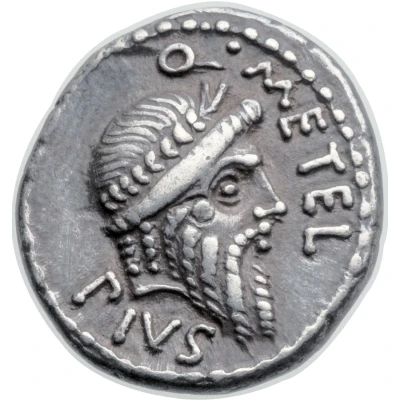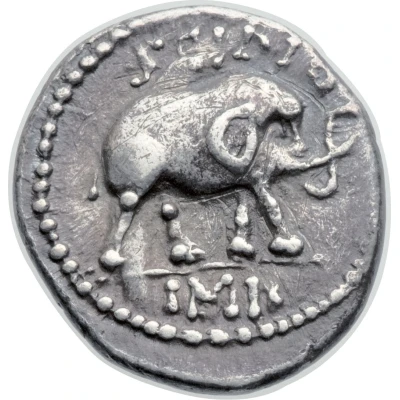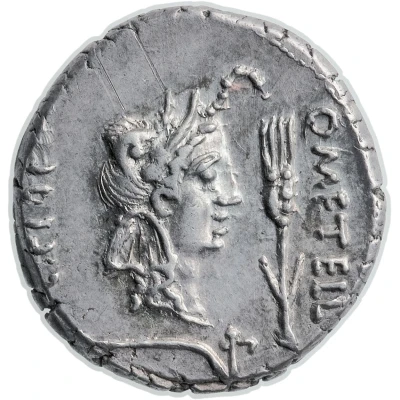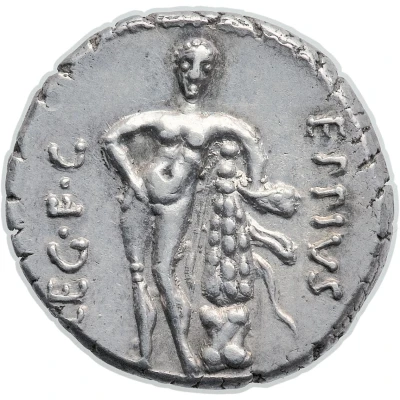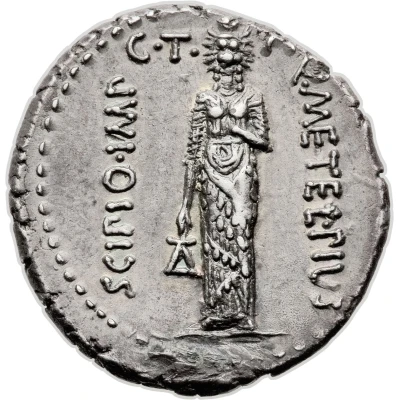
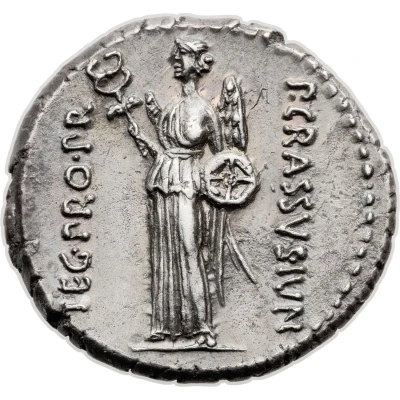

© Heritage Auctions
Denarius - Scipio Q•METEL•PIVS SCIPIO•IMP C•T A/ P•CRASSVS•IVN LEG•PRO•PR 47 BC - 46 BC
| Silver (.950) | 3.83 g | 20 mm |
| Issuer | Rome › Roman Republic (509 BC - 27 BC) |
|---|---|
| Period | Republic (509 BC - 27 BC) |
| Type | Standard circulation coin |
| Years | 47 BC - 46 BC |
| Value | Denarius (1) |
| Currency | Denarius of 16 Asses (141 – 27 BC) |
| Composition | Silver (.950) |
| Weight | 3.83 g |
| Diameter | 20 mm |
| Shape | Round (irregular) |
| Technique | Hammered |
| Orientation | Variable alignment ↺ |
| Demonetized | Yes |
| Updated | 2024-10-06 |
| Numista | N#66847 |
|---|---|
| Rarity index | 97% |
Reverse
Winged Victory standing left, holding caduceus in right hand and patera in left hand; behind and before, second moneyer mark.
Border of dots.
Script: Latin
Lettering:
P•CRASSVS•IVN
LEG•PRO•PR
Unabridged legend: Publius Crassus Iunianus Legatus Pro Prætor
Translation: Publius Crassus Junianus, Legate Promagistrate
Edge
Plain
Comment
Crawford's estimate for this type is less than 30 right-hand corners and 33 reverse corners. This denarius is one of the rarest from the Civil War period.Minted in Utica, this denarius draws its distinctive iconography from the African pantheon, with a representation of the Egyptian lion-headed god Sekmet, holding the ankh, symbol of life. This goddess symbolizes the violent heat of the sun and was honored all along the African coast from Carthage to Alexandria. The "peaceful" Victory on the reverse, accompanied by a small shield, symbolizes the hopes of the Pompeian party in Africa.
CGB
Interesting fact
One interesting fact about this coin is that it features a portrait of Scipio Africanus, a renowned Roman general and statesman, on the obverse (front side), while the reverse (back side) depicts a jug and a simpulum, which were symbols of his victory over Carthage in the Second Punic War.
